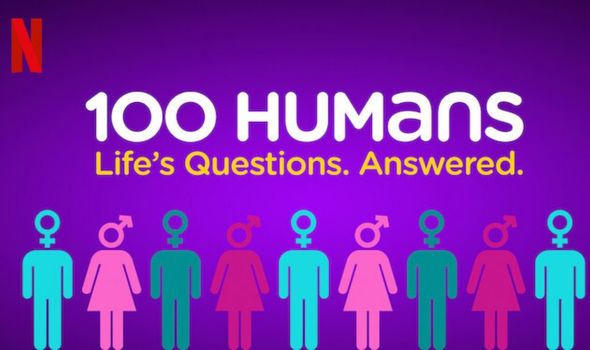“100 Humans: Life’s Questions. Answered.” Gives a New Take on Brain Games
![]() In a time of quarantine and isolation, Netflix decided to release a psychological documentary series based on people in quarantine and isolation. “100 Humans: Life’s Questions. Answered.” is a show reminiscent of National Geographic’s “Brain Games,” but with a twist. As the name states, 100 humans live together on a campus and wait to be pulled into social experiments that test modern issues. Scientific experts then explain the results of each experiment in layman’s terms.
In a time of quarantine and isolation, Netflix decided to release a psychological documentary series based on people in quarantine and isolation. “100 Humans: Life’s Questions. Answered.” is a show reminiscent of National Geographic’s “Brain Games,” but with a twist. As the name states, 100 humans live together on a campus and wait to be pulled into social experiments that test modern issues. Scientific experts then explain the results of each experiment in layman’s terms.
The first episode was lackluster and didn’t truly represent the show’s depth. Experiments in the pilot felt surface level. For example, producers strived to answer the question: does dancing make you more attractive? As I watched, I found that I didn’t care about the answer. I also had to adjust to the cringy comedy of the hosts. It felt oddly placed for a show about science, but I learned to ignore the subpar jokes. I’d recommend skipping the first episode for those who want to give the show a real chance.
As the series went on, there were some standout experiments that had me questioning the world we live in. The episode “Are You Biased?” seemed the most interesting. It featured a set of experiments testing our underlying biases and how society programmed our thought process. For example, test subjects were shown a group of six people, each with a significant other amongst the group. The subjects were tasked with matching up each couple correctly. However, they were allowed to ask each person one question with no limit on what could be asked (other than the obvious ‘who is your partner?’). The experiment went as expected.
A majority of subjects matched the group into heterosexual couples. Even a woman who identified with the LGBTQ+ community made only heterosexual pairings. However, two of the three couples were actually in a relationship with someone of the opposite sex. Out of 100 humans, only one matched the couples correctly.
Experiments like this dive into human behavior and ask why we act in certain ways. The series pulls the curtain back on topics such as racial profiling, pain vs. pleasure, and human bias.
However, each pro has a con. Certain experiments are also deemed questionable. One test equated saving a flying object to being capable of saving a human life. Many are skeptical of the accuracy behind the show, and I don’t blame them. Some experiments are performed sloppily and often add unneeded variables.
Despite the questionable credibility, I still enjoy the show. Even if we aren’t given exact answers, just seeing an experiment in action is enough to get the gears turning. “100 Humans: Life’s Questions. Answered.” provides a more personal perspective on topics. I found myself favoring certain test subjects over others and looking forward to their reactions. The show gives the audience a peek into the minds of each volunteer and allows us to see them as humans rather than a subject to be studied.
Overall, “100 Humans: Life’s Questions. Answered.” has its ups and downs, but the show is worth a watch. Those interested in psychology or those who just want something to watch in quarantine will surely get a kick out of the series.

Janelle Camba is a senior in her second year with the newspaper. She is a member of DECA, FBLA, NHS, and the Interact Club. In her free time, she enjoys...









